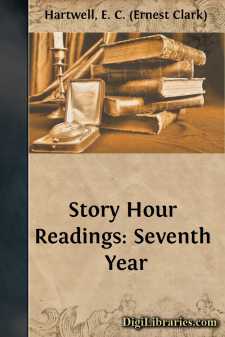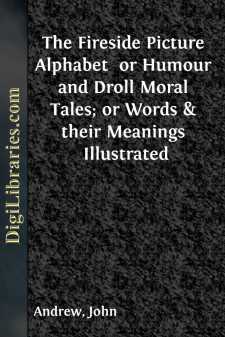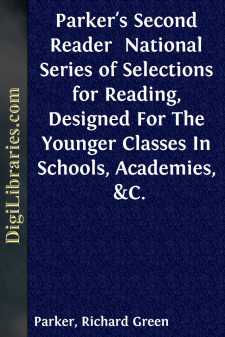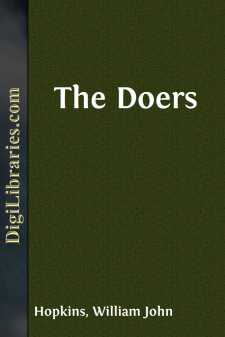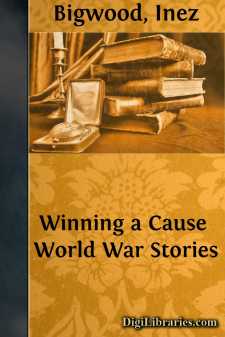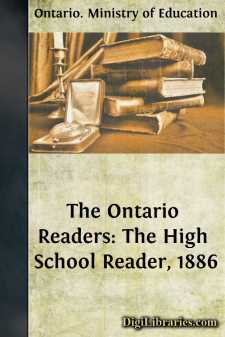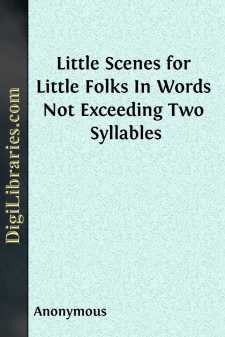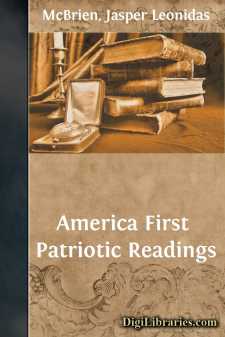Juvenile Nonfiction
- Animals 10
- Art 1
- Biography & Autobiography 2
- Boys & Men 1
- Business & Economics 3
- Cooking & Food 2
- Gardening 1
- General 32
- Girls & Women 7
- History 2
- Holidays & Celebrations 1
- Lifestyles 79
- Literary Criticism & Collections 5
- Nature 11
- Readers
- Religion 4
- Sports & Recreation 1
Readers Books
Sort by:
PREFACE This reader undertakes to provide desirable material for work in silent reading without losing sight of the other elements essential in a good reader for pupils in the seventh grade or in the first year of the junior high school. One task before the teacher of Reading in this year is to foster, by stimulating material, a taste for good reading which it is to be hoped has at least been partially...
more...
by:
John Andrew
TO PRECEPTORS. With learning may laughter be found; "'Tis good to be merry and wise;" To gayly get over the ground, As higher and higher we rise. Some children their letters may learn, While others will surely do more, As the subjects suggestively turn To matters not thought of before. Descriptions and pictures combined Are here made attractive and clear; So suited that children may find...
more...
LESSON I. The Author's Address to the Pupil. 1. I present to you, my little friend, a new book, to assist you in learning to read. I do not intend that it shall be a book full of hard words, which you do not understand. 2. I do not think it proper to require children to read what they cannot understand. I shall, therefore, show you how you may understand what is in this book, and how you may be...
more...
10 ECLECTIC SERIES. EMPHASIS. NOTE.—If the pupil has received proper oral instruction, he has been taught to understand what he has read, and has already acquired the habit of emphasizing words. He is now prepared for a more formal introduction to the SUBJECT of emphasis, and for more particular attention to its first PRINCIPLES. This lesson, and the examples given, should be repeatedly practiced. In...
more...
THE DIGGING-MEN STORY Once upon a time there was a little boy who was almost five years old. And his mother used to let him wander about the garden and in the road near the house, for there weren't many horses going by, and the men who drove the horses that did go by knew the little boy and they were careful. So this boy wandered about and played happily by himself. He had his cat and his cart and...
more...
by:
Inez Bigwood
PREFACE Lest We Forget, the first volume of World War stories, gave an outline of the struggle up to the time of the signing of the armistice, November 11, 1918, and contained in general chronological order most of the stories that to children from ten to sixteen years of age would be of greatest interest, and give the clearest understanding of the titanic contest. This; the second volume of the same...
more...
PREFACE. The selections in the High School Reader have been chosen with the belief that to pupils of such advancement as is required for entrance into High Schools and Collegiate Institutes, oral reading should be taught from the best literature, inasmuch as it not only affords a wide range of thought and sentiment, but it also demands for its appropriate vocal interpretation such powers of sympathy...
more...
by:
Anonymous
GO-ING TO CHURCH. How neat and nice this lit-tle boy and his sis-ter look, go-ing in their Sun-day clothes to church! The lit-tle girl has, I dare say, her prayer book in her bag, and her bro-ther has his un-der his arm. They seem by their fa-ces, to be good chil-dren, and ap-pear ve-ry fond of each oth-er. They have been taught by their kind pa-rents, that it is their du-ty to at-tend di-vine...
more...
by:
Aletta E. Marty
Importance of Oral ReadingThere are several reasons why every boy or girl should strive to become a good reader. In the first place, good oral reading is an accomplishment in itself. It affords a great deal of pleasure to others as well as to ourselves. In the second place, it improves our everyday speech and is also a preparation for public speaking; for the one who reads with distinctness and an...
more...
INTRODUCTION This dramatization of the Continental Congress portrays the spirit of the times during the period of the American Revolution. It deals principally with the debates for and against the Declaration of Independence; it is a summary of the grievances, struggles, sacrifices, and victories of the colonies from the enactment of the obnoxious Stamp Act by the British Parliament to the resignation...
more...


